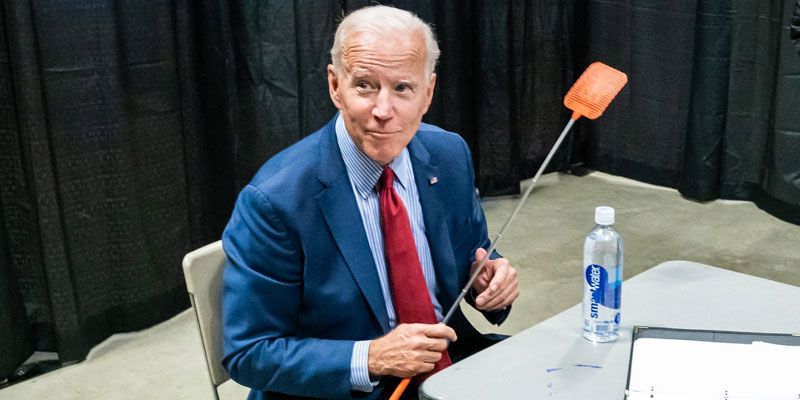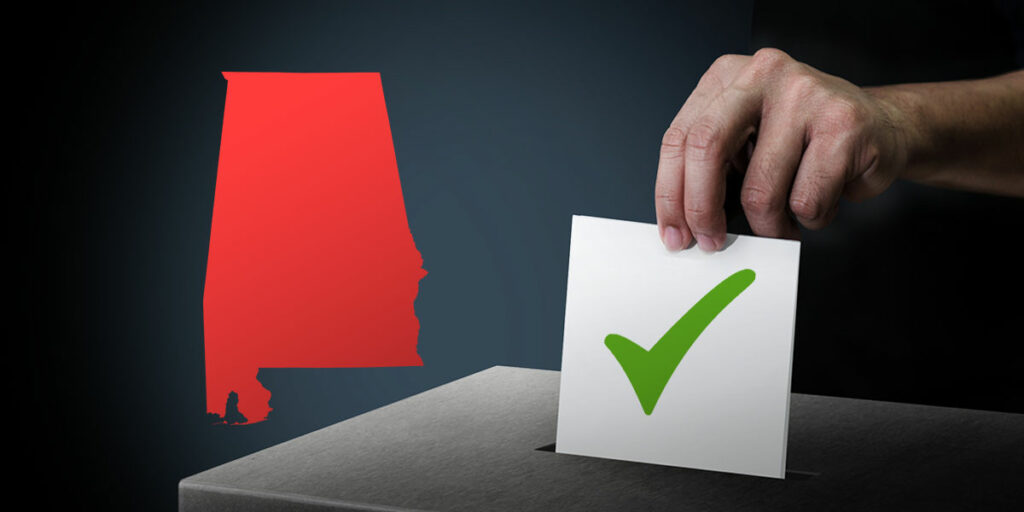From the moment we wake up in the morning until we go to sleep at night, the federal government under the Biden administration seeks to regulate every possible facet of our lives.
The government wants to mandate that the light bulb we turn on when waking must be LED rather than incandescent.
The government wants to mandate that we cannot cook our breakfasts on gas stoves.
Similarly, the government wants to mandate that the cars we drive back and forth to work must eventually run on electricity rather than gasoline.
Every job, industry, and occupation in which we work is subjected to an avalanche of government regulations and decrees.
The family farmers who grow the food we eat for dinner operate under unnecessary environmental regulations that drive many of them out of business after generations of tradition.
Even the alarm clocks we set and the mattresses and pillows we sleep upon at night are regulated by the federal government.
Morning, noon, and night, we live as puppets of government regulation.
The vast majority of these burdensome regulations are never voted upon by the citizens or even Congress, but, instead, are imposed by government agencies in the executive branch that control our lives without ever answering to the electorate.
And students of the U.S. Constitution recognize that these regulatory powers are often not granted by our nation’s foundational document but are simply claimed by an all-consuming, all-powerful, and ever-expanding federal government.
Recognizing the stifling impact that government mandates have on the economy, the free market, and our natural, God-given rights as Americans, President Donald Trump signed an executive order known as the “Regulatory Bill of Rights” that sought to lessen the power of bureaucrats to enforce government regulations without due process.
His order received virtually no press coverage but was one of the greatest victories for civil liberties in modern U.S. history.
Under the executive order, for example, the federal government must carry the burden of proving a violation of the law. We all know that in a criminal court the accused is presumed innocent until proven guilty, but until President Trump’s order, governmental agencies could accuse private citizens of violating rules without ever having to prove their case.
Defending oneself against an agency accusation was a losing battle that could result in mountains of fines and legal bills, even where the citizen was innocent.
One event that prompted the Regulatory Bill of Rights involved a Wyoming farmer who built a small pond on his family’s livestock farm – an example that hits particularly close to home since I was raised and worked on my parents’ cattle operation in Beatrice, Alabama.
Upon learning of the pond’s existence, the Environmental Protection Agency ordered its removal and imposed a fine of $37,500 for each day it remained. Refusing to offer the farmer a hearing in which to make his case or any avenue for appeal, the EPA decreed that water from the pond would somehow end up contaminating a larger body of water located hundreds of miles away.
With the help of conservative legal organizations, the farmer filed suit in federal court, where it was discovered that the EPA blatantly misread Google Maps and wrongly imposed the penalties.
The agency settled with the farmer, but only after subjecting him to years of stress and harassment and threatening fines that totaled roughly $20 million.
As I can attest, farming is more than just a profession – it is a family’s heritage and their home – and federal overreach, like the example above, is a constant and terrifying threat to farmers and small business owners throughout America without the protections of the Regulatory Bill of Rights.
In addition to making an agency prove its accusations, the Regulatory Bill of Rights required agencies to actually present evidence to those accused of regulatory violations, provide the accused with an adequate opportunity to respond, and ensure any penalties were fair and free of coercion.
Each of those requirements is firmly rooted in common sense and should be guaranteed in a nation that was founded upon the basic principles of due process under the law, but rather than embracing these much-needed reforms and providing individuals and businesses alike with a more level playing field against federal regulation, Joe Biden chose to rescind the Regulatory Bill of Rights roughly one month after taking office.
In the official White House statement announcing the action, Biden’s administration said a desire to “ease numerous burdens upon federal agencies” prompted his rescission. That’s right – the Biden administration cares more about easing the burden of its henchmen enforcing its agenda than easing the burdens on your businesses, wallets, and farms.
If you want an example of the liberal extremist, big government mindset and the disdain with which bureaucrats view property rights and individual freedoms, this decision by Joe Biden offers a solid case in point.
As a member of Congress, I pledge to take President Trump’s “Regulatory Bill of Rights” executive order a step further and will introduce legislation codifying it into law, which would prevent D.C. bureaucrats and liberal activists from loading the dice in favor of federal agencies and denying simple fairness to individuals and businesses.
In announcing my candidacy for Alabama’s Second Congressional District seat, I promised that “our families, our farms, and our faith” would serve as the touchstones of my campaign, and passage of this legislation would provide essential protections for all three.
I invite you to join me in our effort to take back power from the federal government and give Washington, D.C. a good dose of our conservative, Alabama values.
A Montgomery real estate attorney who was raised on her family’s cattle farm in Monroe County, Caroleene Dobson is a Republican candidate for Alabama’s Second Congressional District seat.












